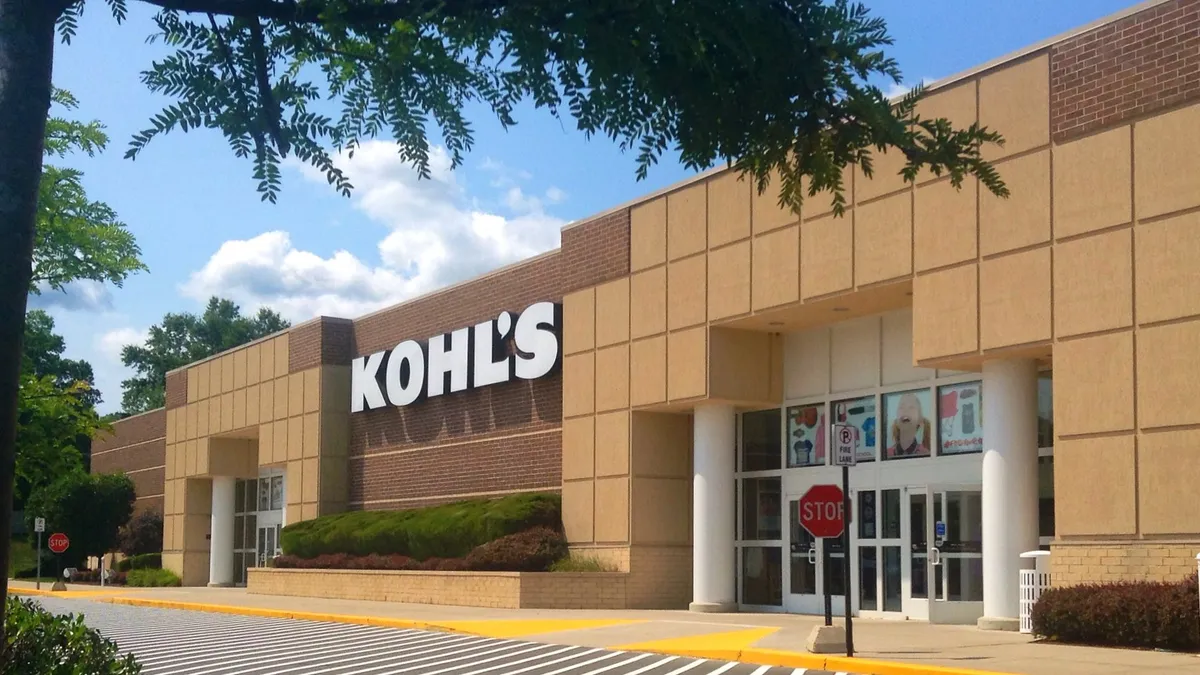Dive Brief:
-
Kohl's board of directors has adopted a shareholder rights plan, also known as a "poison pill," designed to prevent a hostile takeover, the retailer announced on Friday. The plan is effective immediately and expires in one year, according to a company press release.
-
Following an independent review of two recent unsolicited takeover offers, the board concluded they "do not adequately reflect the Company's value in light of its future growth and cash flow generation," Kohl's said. Updates on "ongoing strategic initiatives and capital allocation plans" will be provided at its March 7 shareholders meeting.
-
Acacia Research, owned by activist firm Starboard Value, offered $64 per share for Kohl's, and private equity firm Sycamore Partners is rumored to be another suitor, with an undisclosed offer. On Friday, Acacia didn't immediately respond to a request for comment, and Sycamore declined to comment.
Dive Insight:
Kohl's board isn't alone in thinking that the would-be acquirers of recent weeks are low-balling their offers. Analysts including those at Cowen & Co. say the price could be higher.
The retailer's board pledged to review any offers, and noted Friday that only independent directors sit on its finance committee, which was formed last year after an activist investor group including Macellum Advisors demanded and got a board shakeup.
Macellum, which owns nearly 5% of Kohl's common stock, has been back with more demands in recent weeks, calling for further changes to the board, real estate divestment, more stock buybacks, a breakout of Kohl's e-commerce operations or an outright sale of the company.
It's not clear that a higher bid will ever materialize, or that the current offers would pan out even without the plan adopted by Kohl's board. UBS analysts are among those skeptical that the retailer's real estate value, which would likely be leveraged to finance a takeover, holds enough value.
These discussions center around Kohl's value to shareholders rather than to consumers. The department store continues to see mixed results despite key advantages, including its location away from malls, and several efforts in recent years to boost traffic and gain new customers. The company's struggles mirror that of rivals like J.C. Penney, Sears, Macy's and other mid-tier department stores, which have lost their relevance in an age when middle- and low-income shoppers are gravitating toward discounters and mass merchants instead.
And while Kohl's has taken concrete steps to appeal to consumers — offering name brands, partnering with Amazon and Sephora, revamping private labels and improving stores — these days Target and even Walmart are the ones more likely to be deploying the effective merchandising tactics previously seen at department stores.
















